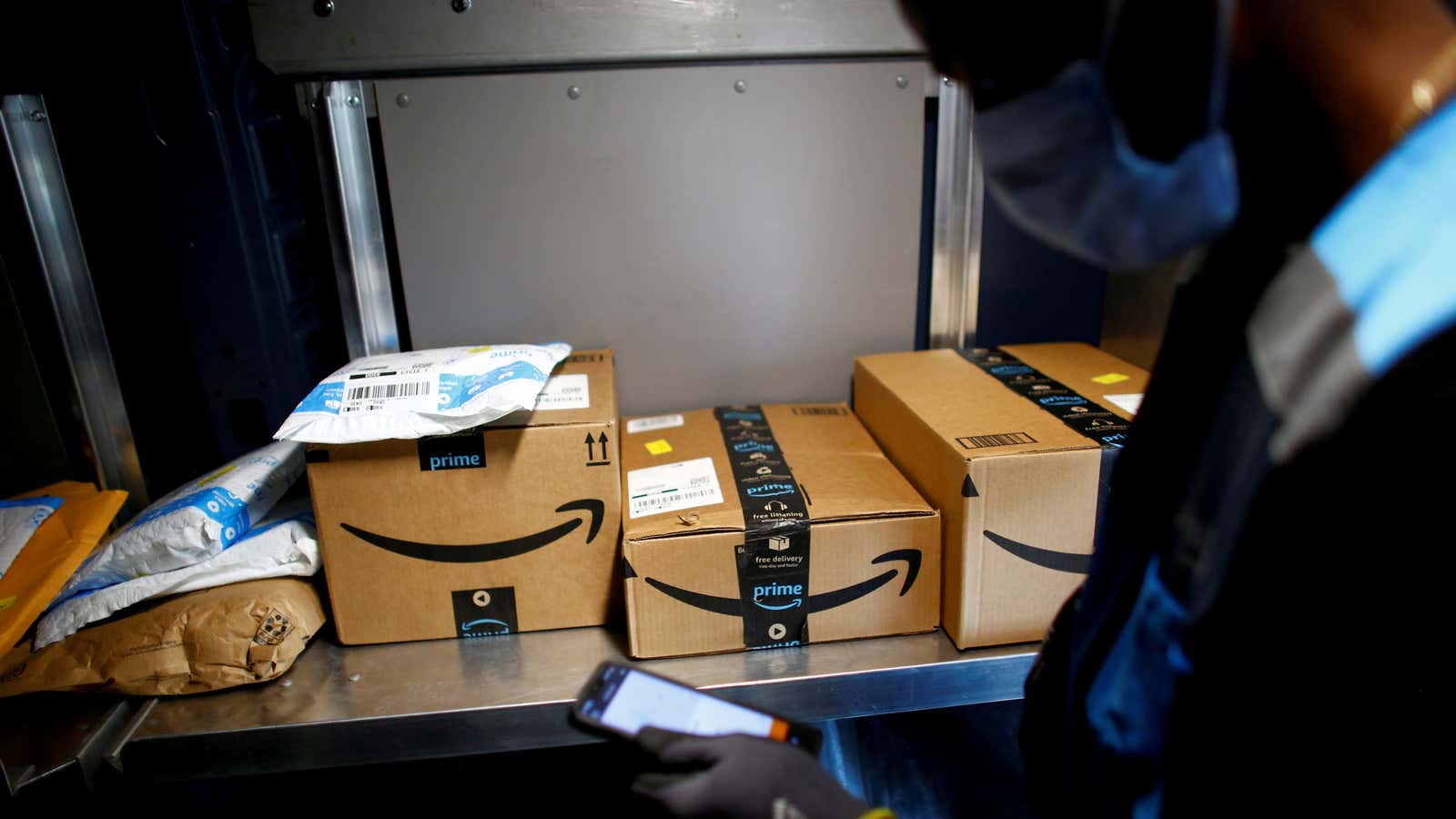Yesterday, one day after members of the US congress grilled tech leaders including Amazon founder and CEO Jeff Bezos on antitrust issues, the company reported a blow-out quarter that saw its sales surge.
In the three months through June 30, during which large parts of the US were in lockdown due to Covid-19, Amazon said it sold more than $50 billion in products, a 40% increase over the same period a year ago. Total sales, which include money it brings in from channels such as its cloud-computing service and fees it charges its vast marketplace of third-party sellers, rose to $88.9 billion, far above the $81.6 billion analysts had forecast.
That means Amazon outdid the $87.4 billion in sales it recorded last year during the holidays, when demand typically peaks before leveling out again. On the company’s earnings call yesterday, CFO Brian Olsavsky said it was “unheard of” to surpass those sales at this time of year—and then added that next quarter is also on track to surpass that level.
Amazon has been stretched keeping up with demand, and it’s now also contending with growing scrutiny from lawmakers. At the congressional hearing, Bezos himself was answering questions such as whether his company uses data culled from its third-party marketplace to launch competing products. Last time Amazon was summoned, it was the company’s general counsel who gave answers. Bezos had to admit that while company policy bans using third-party data that way, he couldn’t guarantee it never happened. He also had to explain how an earlier move to undercut and eliminate competition, and whether Amazon gives preferential placement on its site—the so-called “Buy Box”—to sellers who pay for its services.
Experts are calling for Amazon to be regulated like railroads were a century ago and for antitrust enforcers to take harder stances against it and the other tech giants. “They must promptly bring antitrust lawsuits and seek structural remedies, rather than accepting weak settlements or meaningless fines,” Sally Hubbard, director of enforcement strategy at Open Markets Institute, an independent watchdog of monopolies, said in a statement. It’s an open question whether US lawmakers will act, though it’s one issue that has bipartisan support.
In the meantime, Amazon is only getting bigger. The company, once notorious for not concerning itself with profit so long as it increased market share, doubled its quarterly net income from last year to $5.2 billion. That was despite spending more than $4 billion on coronavirus-related costs, including buying protective equipment, increasing cleaning of its facilities, and collectively paying its warehouse employees and delivery partners a one-time bonus of $500 million.
Olsavsky said on the call online grocery sales tripled compared to last year, while hours of content streamed worldwide on the site doubled. Members of its Prime subscription service, which keeps shoppers locked into buying from Amazon versus competitors, drove the increases, he said. They shopped more often and bought larger quantities of products than non-members.
He noted an acceleration in new subscribers in the US and abroad, adding to the more than 150 million paying members globally it has previously reported. “That’s a good sign that we’re happy about, and we hope that has long-term ramifications,” he said.
